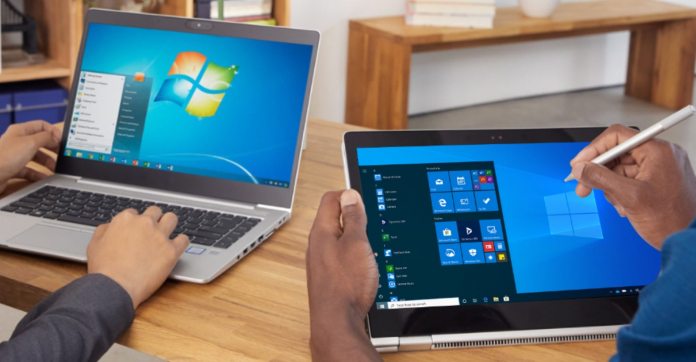On January 14, Windows 7 will become an obsolete platform as all support for the OS will cease. Microsoft is now ramping up its efforts to get Windows 7 users to upgrade to Windows 10. The company is continuing to issue warnings about the dangers of sticking on Windows 7.
Many Win7 users have already jumped ship to Windows 10 following an aggressive campaign from Microsoft over the last year. However, Windows 7 had a vast install base and many millions of users are still on the platform.
Not least enterprises who have not been able to update to Windows 10. For those remaining Win7 holdouts, Microsoft is pressing home that this is the end of the road.
“After January 14, 2020, if your PC is running Windows 7, it will no longer receive security updates. Therefore, it's important that you upgrade to a modern operating system such as Windows 10, which can provide the latest security updates to help keep you and your data safer,” Microsoft warned in a post.
Redmond has been pitching directly to users the need to upgrade for years. Over the last year, those efforts have increased. Last month, the company sent specific warnings to enterprise users.
Of course, Microsoft is correct to point out the security risks posed by sticking with Win7 beyond next week. With no security patches arriving on the platform, all machines still running the OS will be vulnerable to attacks. For a single user this would be a headache, while for an organization is could be catastrophic.
Future
That said, it's also clear Microsoft wants the end goal of getting as many people on Windows 10 as possible. With that in mind, the Windows 7 support page has the following blurb that comes off as a sales pitch:
“For most Windows 7 users, moving to a new device with Windows 10 will be the recommended path forward. Today's PCs are faster, lightweight yet powerful, and more secure, with an average price that's considerably less than that of the average PC eight years ago. We recommend that you don't install Windows 10 on an older device, as some Windows 7 devices are not compatible with Windows 10 or could experience reduced feature availability.”
It is worth noting in August Microsoft extended support of Windows 7 for enterprise users.
Enterprise Agreement (EA) and Enterprise Subscription Agreement (EAS) customers subscribed to Windows 10 E5, Microsoft 365 E5, or Microsoft 365 E5 Security can now choose to receive Windows 7 Extended Security Updates for a year. For those customers that opt in, patches will be rolled out at no additional charge.






